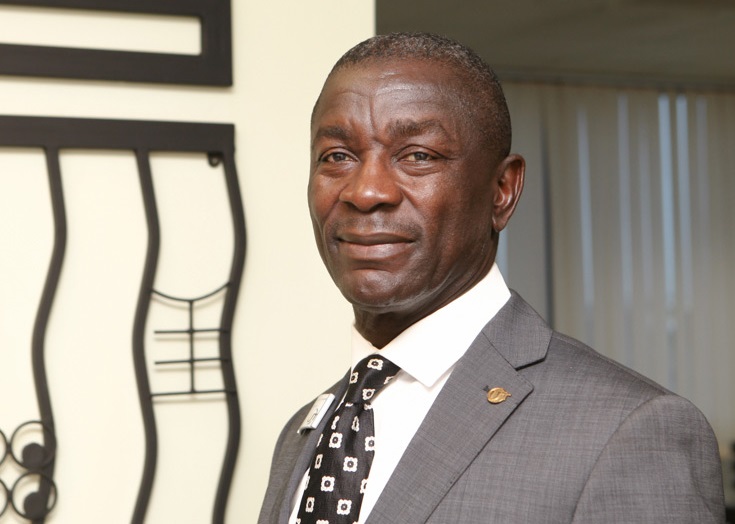Kofi Amoabeng granted GH₵110m bail as state slaps charges
Former Chief Executive of UT Bank, Prince Kofi Amoabeng, has been granted a GH₵110-million bail after he was charged with stealing and money laundering.
The businessman was earlier arrested in connection with the collapse of UT bank in August 2017 after it was declared insolvent by the Bank of Ghana.
Joy News reported Tuesday that the entrepreneur was picked up at his office and put before the Circuit Court Four.
State prosecutors revealed Mr Amoabeng misappropriated $51 million and illegally transferred some monies into offshore accounts.
He, however, pleaded not guilty to the charges levelled against him.
While before the court, his lawyers insisted he was cooperating with investigations adding that Mr Amoabeng, who earlier had his seized passport returned, travels and returns to the country.
Mr Amoabeng has taken responsibility for his banks’ demise. But he has also blamed the challenges in the banking sector on the regulator’s poor scrutiny of the sector.
In an interview with JoyBusiness in August 2019, Mr Amoabeng said, banking licenses were issued anyhow and to all sort of people without proper checks causing the current crisis in the banking sector.
“In recent times, because of politics and the way we play politics, it’s a matter of ‘whom you know’. So licenses were issued anyhow in so many numbers to all sort of people. That is what caused the problem. The people were not checked properly.”
A Bank of Ghana authorised investigations done by the auditors, Boulders Advisors Limited revealed that some loans granted by UT Bank were flagged by auditors as flouting prudential regulations.
It said a review of ‘Loans Granted to Related Parties Not Connected to the UT Group’ found that there were “poor credit management practices, poor credit governance and supervision.”
Targeted
In September 2019, Mr Amoabeng fired shots at Ghana’s political leadership over the collapse of his UT Bank, claiming the bank was targeted because he refused to fund any political party.
In any hold-back interview with TV3, Mr Amoabeng revealed that his company “never gave money to any political party” for the over 20 years it existed, a policy he indicated, ruffled political feathers, leading to the end of the financial institution in 2017.
For him, politicians do not mean well for the country for which reason he was not ready to give his money to support them to win political power to superintend over corruption.
“I said I don’t trust that they meant well for this country,” Mr Amoabeng said, adding “I wasn’t going to give them my money for them to come to power and be corrupt on the people. That was my policy”.
According to him, the only time his money went into politics was when his sister, who he did not name, stood for primaries.
Amoabeng also said on other platforms in October that observed that indigenous businesses thrive on political mentor’s whims and caprices especially, if one was prepared to accommodate their demands.
He said he should not have allowed his time tested principles of not accommodating politicians, religious leaders and traditional leaders to have the better side of him, adding, that must have led to the collapse of his business empire.
Mr Amoabeng said his flagship investment, UT Bank lost a chunk of the empire when the Bank of Ghana (BoG) revoked the banking license of UT Bank and placed it under receivership at the time its liabilities far outweighed the assets.



